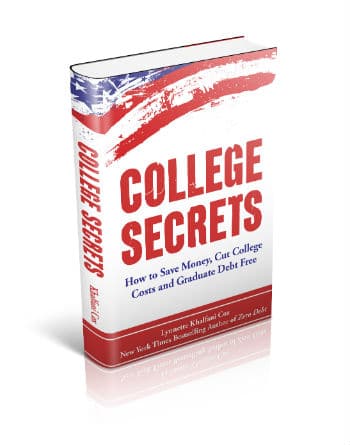If you’re a student (or a parent) wondering how to pick the best college, you’re not alone. With thousands of four-year institutions in the U.S., choosing the right school can feel overwhelming—but it doesn’t have to be.
The smartest approach? Look for the best academic, social, and financial fit. Here’s how to make a decision that ensures you’ll thrive both in and out of the classroom—without breaking the bank.
Start With a Student-Centered Approach
Peter Van Buskirk, former dean of admissions at Franklin & Marshall College and founder of BestCollegeFit.com, says the most effective way to select a college is to focus on the student first, not the school.
Ask Yourself Key Questions
Before you even research colleges, ask:
-
What are my values? (e.g., service, success, creativity, faith)
-
What do I do well? (both academically and in life)
-
What can I offer a college?
-
What do I want to accomplish in college?
This process of self-discovery helps clarify which schools will truly support your goals, talents, and learning style.
Five Criteria for the Right College Fit
According to Van Buskirk, a college is a good fit when it:
-
Offers your desired program(s) of study
-
Teaches in a style that matches how you learn
-
Provides the right level of academic challenge
-
Feels like a welcoming community
-
Values you through personal attention and financial aid
Let’s explore each in detail.
Academic Fit: Programs, Teaching Style & Rigor
1. Does the College Offer Your Program?
It sounds basic, but many students discover—too late—that their intended major isn’t offered. Even if you’re undecided, check that all your top interest areas are available.
Questions to ask:
-
Does the school have your intended major?
-
What about minors or concentrations?
-
Are research opportunities and electives in your field robust?
2. Does the Teaching Style Match Your Learning Style?
Learning environments vary:
-
Lecture-based learning vs. interactive group work
-
Experiential learning (e.g., internships, field work)
-
Online courses vs. in-person discussion-based formats
Be honest about how you learn best and select a school accordingly.
3. Is the Academic Rigor the Right Fit?
You want to be challenged, not overwhelmed. Ask:
-
What’s the student-faculty ratio?
-
What are graduation and retention rates?
-
Are honors programs or support services available?
Social Fit: Campus Culture and Community
Feeling “at home” on campus is essential for academic success and personal well-being.
Ask yourself:
-
Can I see myself fitting in here?
-
Does the campus feel welcoming?
-
Is the environment diverse and inclusive?
-
Are there clubs, organizations, or spiritual communities that match my values?
Visit campuses if you can—or attend virtual tours—to get a real feel for student life.
Financial Fit: Making College Affordable
Here’s the reality: Getting admitted isn’t the same as being able to afford it. A truly good-fit college should meet your academic and social goals and be financially viable.
Need-Based vs. Merit-Based Aid
-
Need-Based Aid: Based on your family’s income and assets
-
Merit-Based Aid: Based on your achievements, talents, or leadership
Some schools—like Ivy League institutions—offer need-based aid only. Others are generous with merit scholarships. Use tools like MeritAid.com to find schools that reward your unique strengths.
Signs a School Values You
Colleges that value you financially will:
-
Offer scholarships, grants, or flexible payment plans
-
Personalize the admissions and aid process
-
Communicate openly about costs and support options
Practical Advice: How to Get the Most Financial Aid
-
Apply early and submit the FAFSA and CSS Profile (if required)
-
Be in the top quartile of applicants at a college to increase merit aid chances
-
Research Net Price Calculators on each college’s website
-
Ask questions: Speak directly with financial aid officers
Remember: The most prestigious school isn’t always the most generous. Look for where your strengths are valued.
Guidance Counselor Tips (And Warnings)
Many high school counselors aren’t trained in financial aid strategies. While they can help with applications and essays, don’t rely on them for financial planning.
Consult trusted resources like:
-
College admissions consultants
-
Reputable websites (e.g., TheCollegeSolution.com)
-
College financial aid offices
Should You Trust College Rankings?
Rankings can be helpful—but don’t use them as your only guide. They don’t account for your personal values or learning style. Use rankings as a starting point, then dive deeper with campus visits, alumni chats, and your own criteria.
Colleges vs. Universities: Which is Right for You?
-
Liberal Arts Colleges: Focus on critical thinking, small classes, and personalized mentoring
-
Universities: Offer broader research opportunities, professional programs, and often more majors
Liberal arts colleges are ideal for students who want individualized attention. Universities may be better if you’re pursuing pre-professional tracks like business, engineering, or law.
Final Thoughts: Picking the Best College for You
The best college isn’t necessarily the most famous or the highest-ranked. It’s the one that:
-
Fits your academic goals
-
Feels like a community you can thrive in
-
Offers enough financial support to make attendance realistic
Take the time to reflect, research, visit campuses, and ask the right questions. Your future self—and your bank account—will thank you.
FAQs:
What is the most important factor when choosing a college?
It depends on your priorities, but academic offerings, cost, and campus culture are all essential for a well-rounded fit.
How do I know if a college is a good financial fit?
Look at the net price (not just tuition), and whether the school offers need-based or merit-based aid for someone with your background.
Should I pick a school based on major?
Yes, at least ensure the college offers the majors or academic fields you’re seriously considering. Avoid schools that limit your options.
Is it okay to be undecided about a major?
Absolutely. Choose a college that supports academic exploration and offers strong advising for undecided students.
How many colleges should I apply to?
Most experts recommend applying to 5–8 schools, including reach, match, and safety options—each with good financial and academic fit.











